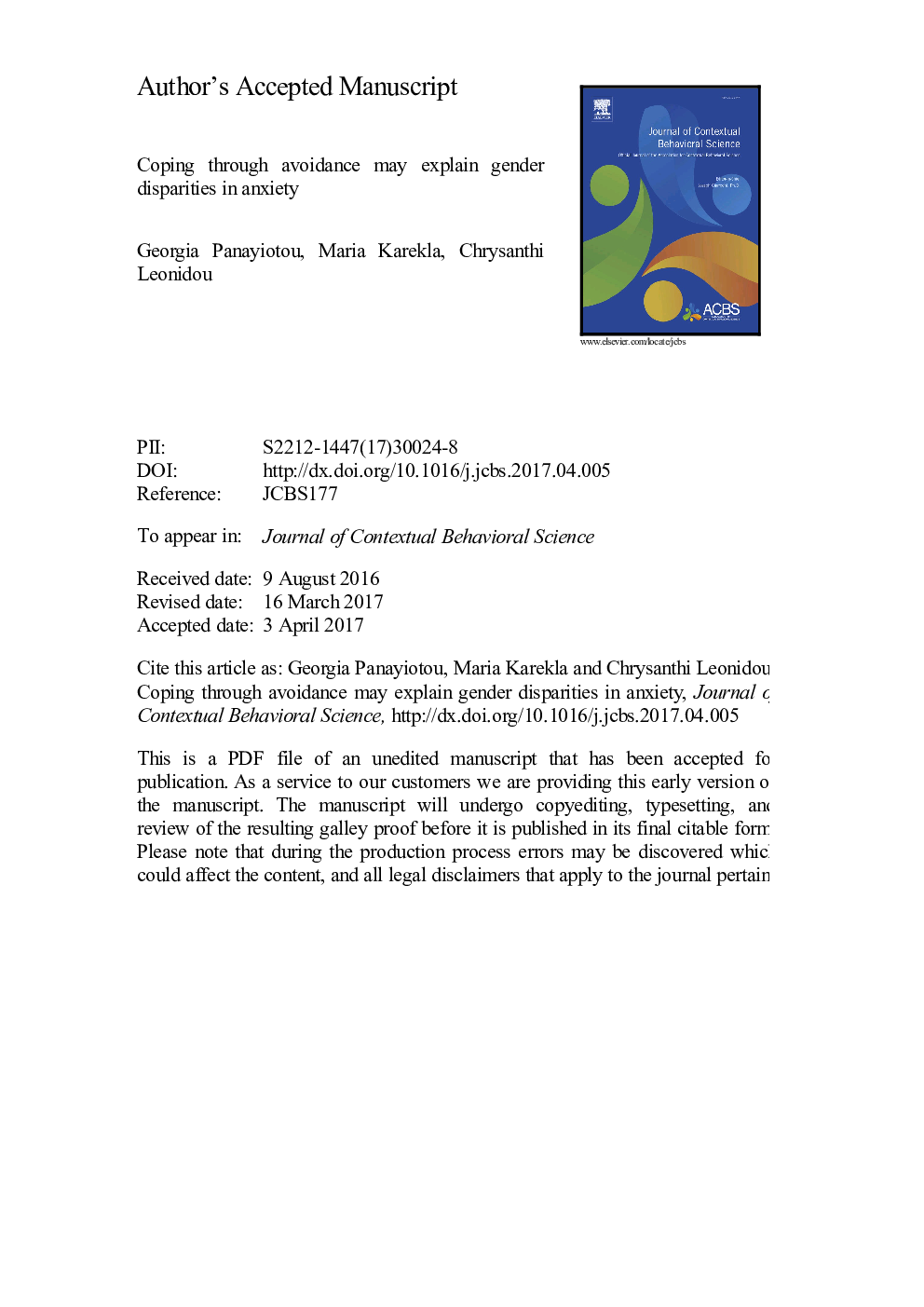| Article ID | Journal | Published Year | Pages | File Type |
|---|---|---|---|---|
| 7268387 | Journal of Contextual Behavioral Science | 2017 | 29 Pages |
Abstract
To-date no models adequately address the higher vulnerability of women to anxiety pathology, in contrast to other disorders, such as depression where ruminative thinking has been identified as accounting for women's greater risk. This investigation examines the hypothesis that gender differences in coping, with women relying more on specific types of avoidance, may in part explain women's anxiety risk. Coping, experiential avoidance, anxiety symptoms, anxiety sensitivity and perceived stress due to life stressors were assessed in a community sample (N=456). Women were more likely to meet clinical screening cut-offs for anxiety disorders, report more symptoms and experience greater anxiety sensitivity than men. They also reported greater reliance on avoidant coping and experiential avoidance, which were associated with increased anxiety. Gender moderated coping effects so that the coping style that mostly differentiated women from men in predicting anxiety was behavioral disengagement. To the contrary, self-reported stress due to life events did not significantly explain anxiety gender effects as no significant moderation by gender was observed. Results suggest that greater reliance on avoidance, especially behavioral avoidance, may be associated with increased vulnerability to anxiety specifically among women.
Related Topics
Health Sciences
Medicine and Dentistry
Psychiatry and Mental Health
Authors
Georgia Panayiotou, Maria Karekla, Chrysanthi Leonidou,
